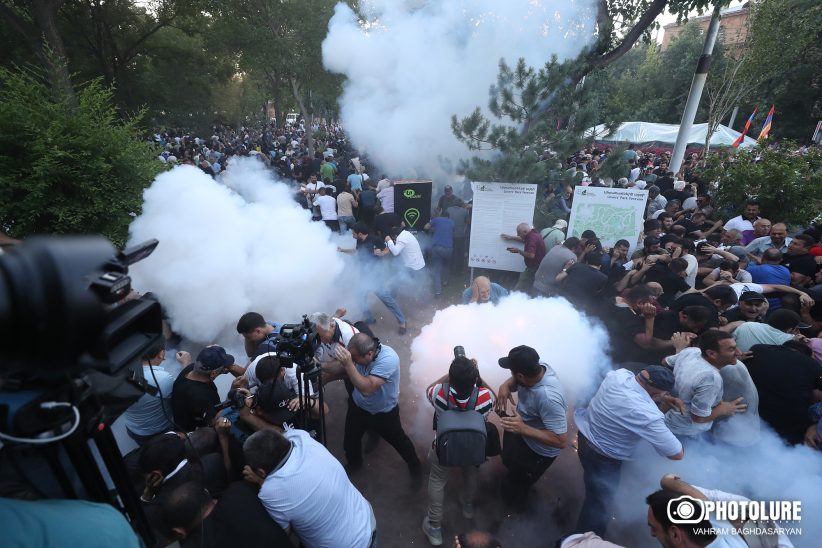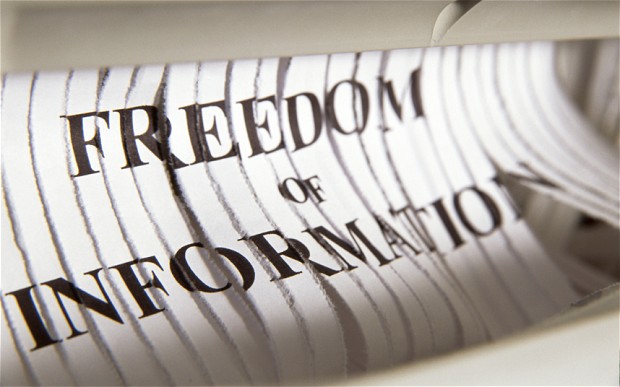During the third quarter of 2021, journalists and media outlets faced new restrictions. The heated political struggle in the parliament of the eighth convocation formed as a result of the snap elections was accompanied by harsh pressure on the media and regressive initiatives that jeopardize freedom of speech and information, and restrict journalistic activities.
One of the concerning events was the unexpected decision of the NA leadership on restricting the activities and free movement of journalists in the parliament building, which caused indignation and concern of media and public media organizations. This “innovation” was accompanied by the abuse of the NA Speaker’s powers. Whenever there was a tense situation in the session hall, he instructed the live broadcast to be turned off, and at the same time the security guards removed the journalists from the press room, namely their workplace, and banned videotaping. All this is a gross violation of both the media outlets’ rights conducting their professional activities and the public’s right to be informed.
The CPFE with partner organizations jointly issued four statements on all of the above cases, deeming the restrictions and pressures unacceptable. Listening to the criticism of the journalistic community, the NA Speaker convened a meeting on August 23 to discuss the issue with the heads of the following organizations – the Committee to Protect Freedom of Expression, Media Initiatives Center, and the Journalists’ Club Asparez. However, as a result, no change was made in the problematic decision. And on August 30, in the National Assembly, the Standing Committee on Protection of Human Rights and Public Affairs organized a meeting to discuss the newly-emerged issues. In practice, it also failed to produce any results.
The intentions of the authorities to hinder the activities of the media and restrict access to official information were also expressed in proposing legislative and other normative-legal acts. Thus, the amendments and supplements to the RA Law on Media initiated by the ruling party were put into circulation again from the beginning of September, although both local journalistic organizations and international organizations expressed a negative opinion on it. In particular, the bill proposes, among other things, to ban reference to unidentifiable sources. This change can seriously hinder journalistic activities, limiting the work with information sources. At the same time, it does not solve the disturbing problem of spreading false news. In this regard, one of the most effective ways to fight against this issue may be the Media Initiatives Center’s fact-checking and disinformation program, implemented with foreign partners, which, however, continues to be protested by dozens of media outlets, especially those whose monitoring reveals false news.
On July 30, the National Assembly adopted a package of draft amendments to the Criminal Code and Criminal Procedure Code, which came into force on August 30, criminalizing public insult to a person, for which fines of various sizes, and in some cases imprisonment of up to 3 months were envisaged. If a person carries out journalistic, publicistic, socio-political activities or holds a public post, a more severe punishment is envisaged for insulting them than in the case of an ordinary citizen. The package of these projects was assessed by journalistic organizations as a setback from the decriminalization of insult to criminalization, highlighting, among other things, the existing discriminatory approach towards different groups of citizens. On September 28, Freedom House international organization issued a short statement expressing concern in this regard, calling on the Armenian authorities to immediately end the implementation of this unconstitutional legislation that was meant to criminalize insult.
The drafts proposed by the Ministry of High-Tech Industry and the NSS and uploaded on the official e-draft.am platform on July 2 were a matter of serious concern, too: the drafts stipulated not to publish information on the e-gov.am website of the RA Government on the decisions made about the aims of, costs incurred and topics discussed during officials’ business trips. In addition, the drafts provided for non-submission of information on single source procurements and a number of other details. The vast majority of the provisions in the documents under consideration contradict Article 51 of the Constitution, the RA Law on Freedom of Information, as well as the commitments undertaken by the RA within the framework of the International Open Government Partnership. All these concerns were expressed at the meeting with the Minister of High-Tech Industry by the heads of the Committee to Protect Freedom of Expression, Freedom of Information Center, Media Initiatives Center and other NGOs. The above-mentioned drafts were not adopted as of September 30.
Another initiative related to the media refers to making amendments and supplements to the Law on Advertising. On September 16, by the decree of the Government of the Republic of Armenia, a bill was approved and submitted to the National Assembly, which proposes to ban the advertising of lotteries, Internet totalizator and Internet gambling games on TV, radio, Internet and outdoor posters.
In total, during the quarter there were 3 reported cases of physical violence, 23 cases of pressure against the media personnel, and 37 violations of the right to receive and disseminate information.








